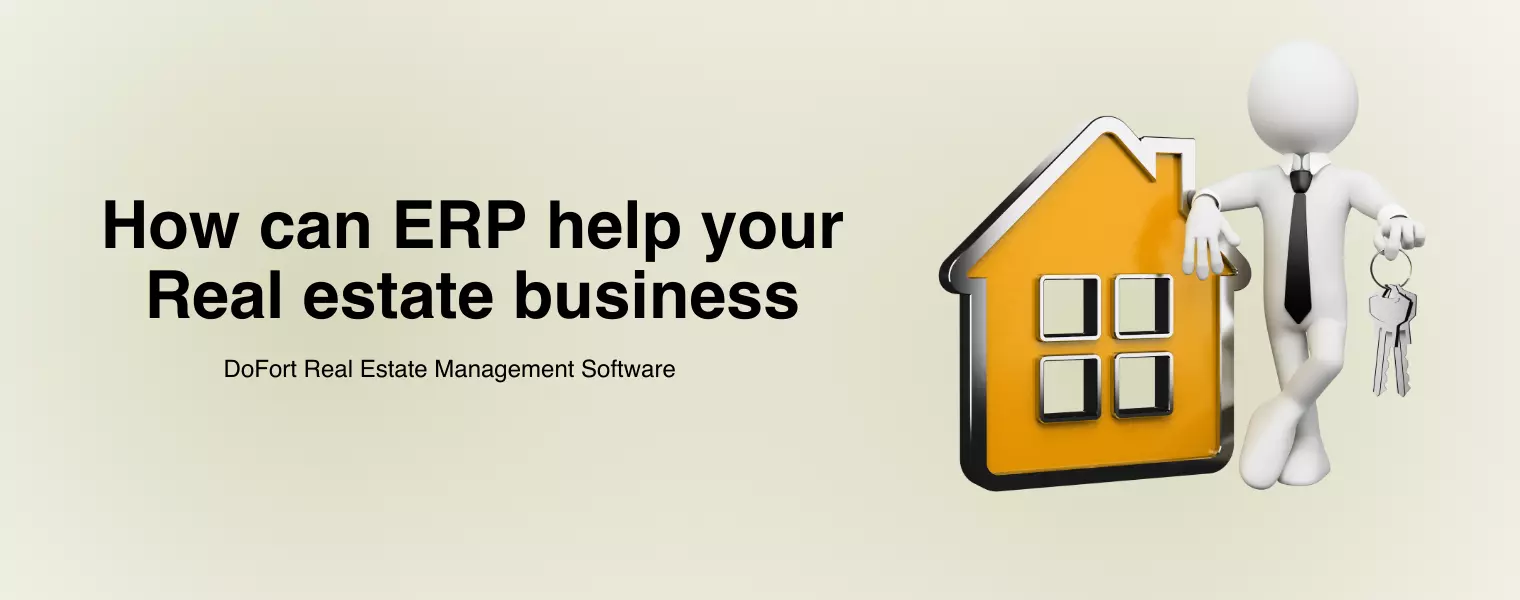
One of the solutions required by real estate and property firms is real estate software . In recent years, the sector has expanded quickly. Real estate business operations are continually evolving in response to market demands. Real estate management encompasses all corporate processes and operations including the management of assets such as freehold property, as well as the administration of residential, industrial, and commercial properties such as retail complexes and apartments.
To manage a successful real estate firm, organizations must constantly adapt to the changing business environment. It necessitates ERP software that can be tailored to the specific demands of each organization. A real estate company's whole management process is covered by an ERP system. Even property sales and leasing, project implementation, finance, and general company administration are included. To maintain market leadership, every real estate firm owner needs a custom-designed solution. One of the distinguishing features of ERP systems is the availability of a number of modules that enable various business departments to communicate with one another. As a result, an ERP system might range from a basic property management system to a customer relationship management solution. As a result, new implementations such as accounting systems and financial reporting are possible.
MORE PRACTICAL SOFTWARE
REAL-TIME BUSINESS INFORMATION
AUTOMATION BUSINESS PROCESSES
INCREASE DATA SECURITY
Although people frequently use Microsoft Excel to execute difficult formula calculations. Companies may not apply manual techniques and instead, rely completely on spreadsheet software to help them make business choices. Because achieving the desired level of efficiency will be difficult.
Many businesses also utilize distinct software for each module. Even so, it might be inconvenient to have to update all of the software for each edition. It would be more feasible if the software upgrade for all modules used data from all organizations in a single database.
As a business grows, it requires efficient software to maintain data. ERP systems, on the other hand, may streamline the data input process and update information in real-time and correctly. Each department's work must be coordinated in order for the organization to boost its efficiency and remain competitive.
A lack of trustworthy data may raise the danger of diminishing the real estate business's net operating income. This is due to the fact that data is required to make timely business choices. Contribute to reducing the opportunities lost as a result of these difficulties.
ERP systems are important in this area for unifying business operations and enhancing communication for users who operate in different departments within a company. ERP systems help automate business operations and centralize data storage. It allows consumers to easily access info. Using ERP in the real estate market may assist save a significant amount of time and money. The degree of firm productivity will rise as a result of system automation.
Real estate companies contain a lot of information about their owners that can be hacked. ERP features a firewall that stores all data in a single system to avoid data breaches. There is a high level of security while accessing data since the system can precisely monitor every operation. This feature has the potential to boost client trust.
Companies must constantly adapt to altering business conditions in order to manage a successful real estate firm. Investing in a high-quality ERP system generates significant long-term benefits. Businesses can obtain a multifunctional system that gives enough control over total business management operations. With DoFort Real Estate ERP , you can be confident that you have the correct ERP system with the required features, effectively implemented. Our product specialists understand your specific company requirements and carefully identify the right solution for you. Contact us for more info at - info@doforttech.com
Welcome to DoFort !